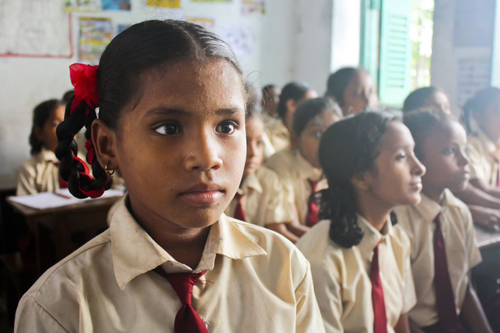
瑞星女孩 是故事片將公佈3月7日, 它告訴九個來自秘魯真正的和顯著的少女的故事,令人難忘, 海地, 埃及, 塞拉利昂, 阿富汗, 埃塞俄比亞, 印度, 尼泊爾和柬埔寨. 那些姑娘們’ 故事是由梅麗爾·斯特里普敘述, 安妮·海瑟薇, 凱特·布蘭切特, 薩爾瑪·海耶克, 艾莉西亞凱斯, 克洛伊莫雷茨, 芙蕾達·平托普里查普拉, 塞萊娜戈麥斯和克里華盛頓.
This hauntingly moving film also reveals some harrowing facts. Sixty-six million girls are out of school worldwide. Girls are the victims of 80 percent of all human trafficking crimes. Girls and women are the victims of 75 的艾滋病病例撒哈拉以南非洲%的, the region hardest hit by this disease. One hundred and fifty million girls are victims of sexual violence in a single year and 50 percent of all the sexual assaults in the world are on girls under 15. Fourteen million girls under 18 今年將結婚, 可悲, 數量 1 死亡女孩的原因 15 – 19 is childbirth. A girl born on Planet Earth has a 1 在 4 chance of being born into poverty. 然而,…. 如果印度參加 1 %的女生中學, 其國內生產總值將上升 $5.5 十億. Girls with 8 years of education are 4 times less likely to be married as children. 出生在一個有文化的母親孩子是 50 percent more likely to survive past the age of 5. 教育額外一年一個女孩可以賺 20 %以上作為成人, 和受過教育的母親都超過兩倍,可能送孩子上學. Is it any surprise that a revolution is brewing and that girls are beginning to rise up?
I asked the Academy-Award nominated director of 瑞星女孩, 理查德·ê. 羅賓斯, along with some internationally minded students, 雷切爾列維, Kaoruko望月, Flicky Dodsley, 莫德Paulis, and their teacher, 女士. Audrey Enriquez of The Dwight School, to share thoughts and perspectives on the issues raised in the film 瑞星女孩 as well as on the global community’s next steps to finding solutions.
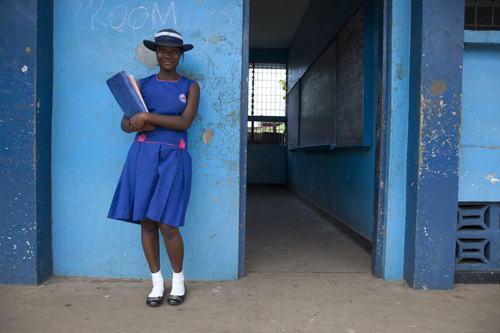
What did you think of the film 瑞星女孩? What did you take away with you after screening the movie?
女士. Enriquez: I thought it was a very unique, creative and intelligent way to engage the audience. It was like weaving a hauntingly beautiful tapestry together — first stitched with sadness, then with hope. My favorite parts were of the little girls from Egypt and Calcutta, 印度 – the cartoons and drawings interspersed with the story made them and their sad yet hopeful plights, which verged on the surreal, become very much real, present and alive.
雷切爾: I have been really involved with an organization called WISER which gives girls in Muhuru Bay, Kenya the chance to get a secondary education, and so the movie had a strong impact on me. It made me think about all the reasons I became involved in WISER in the first place.
Kaoruko: Waking up early in the morning and doing our homework can be dreadful at times. But for the children globally who cannot go to school, education is a big dream. That’s what this film taught me. During and after the screening I felt a rather sad feeling inside me.
Flicky: I really enjoyed the film and I thought it was brilliant that the problems facing a lot of girls were being made even more known.
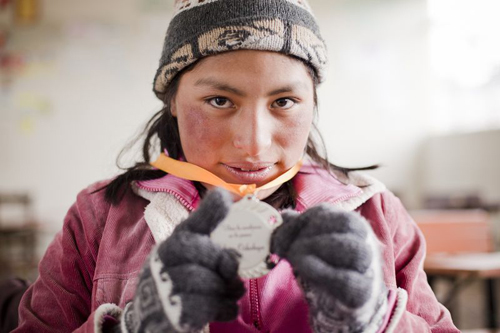
Was there any particular girl’s story that resonated especially with you?
Flicky: It was Suma’s story that resonated with me the most because of the age she was forced into bonded labor and the tasks she had to carry out. I baby-sit for a young girl who only turned 7 a week ago and I imagined her in Suma’s position.
Kaoruko: Suma had to separate from her family and go to work while her brother was able to get a proper education.
Maud: The story that stuck with me the most was that of the Afghani girl. Hearing how she was married off at the age of eleven, and then forced to have children and take care of the household rather than going to school, was heartbreaking.
雷切爾: Amina’s section of the movie particularly. Her hopes and dreams for the future reminded me of those of the girls at WISER in Kenya. It was that hope that sparked my passion.
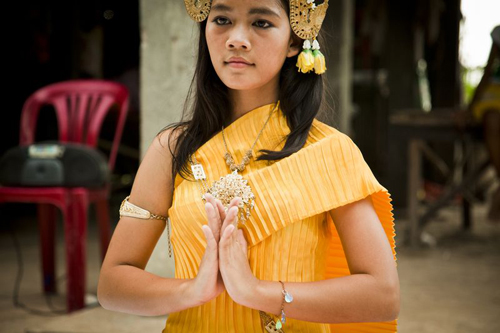
Do you believe it is our responsibility to ensure all girls, regardless of socio-economic background, 種族或情況, realize their right to a quality education?
理查德·: While I do believe it is both our responsibility to do everything we can, and every person’s right to have an education, I’ve actually tried hard to stay away from a rights and responsibilities argument in the film. Not because I don’t believe in it. I believe it with all my heart. But because I don’t think it is the most effective argument to be made on behalf of educating girls. 我贊成教育女孩的說法更實用. We should do it because it is an incredibly powerful tool for ending global poverty.
If all girls around the globe could get an education, how do you think that would change the world?
Maud: The world would change and progress drastically. It would benefit the economy greatly. HIV/AIDS rates would plummet. Overpopulation would decrease. Not only would these cultural and health changes occur, they would also be maintained, as the next generation, with educated mothers, will have a much higher chance of being educated.
Kaoruko: If girls could get an education, the world would find new solutions to big problems that concern the world right now.
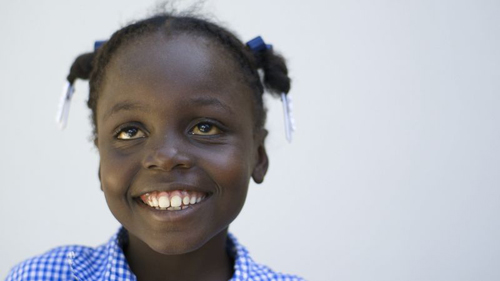
The world has seen protests by girls across Africa and Asia this year and it is clear that in places where girls are treated as second-class citizens, girls are fighting back. What role do you think Social Media has played in helping these girls? Is this a good thing?
理查德·: I will tell you that even among the poorest girls we met in our travels, a surprisingly large percentage of them have cell phones. Even in villages that don’t have electricity, people save their money to pay for an hour at a charging station run off a generator. I don’t think it takes a lot of imagination to think about what it means that girls like that can be connected, even through a simple phone.
女士. Enriquez: It allows even the most seemingly insignificant tale from the most seemingly unimportant person in the most remote corner of the world to be told and heard by many.
Maud: Girls in Africa and Asia will learn about cultural differences and will realize from the spread of information through the Internet that they too should have the same rights.
Flicky: When I “liked” the WISER page on Facebook, a couple of my friends from England asked me what WISER was, so it was social media that led them to understanding the inequality girls face in other parts of the world.

What do you hope girls and boys who view your film will do to help this important cause?
理查德·: First is that they simply inform themselves about this issue. Thirty years ago global warming was not widely understood. I like to think that’s where girls’ education is now, although I hope it won’t take us 30 years to reach the level of awareness we need. 第二, we hope that people look for ways to get involved. We are at the dawn of a new era for individual philanthropic engagement. Individuals with skills, 思路, and money can make a dramatic difference half a world away. And finally we need people to demand change on a policy level. Right now the United States spends less than 2 cents of every development dollar on programs for girls. That simply isn’t enough.
Now that the girls in this film have come forward to tell their stories, what do you believe we can do to help their cause?
雷切爾: After traveling to Kenya and creating personal bonds with the girls at WISER, I understand that money is a strong way to help girls looking for an education. I have learnt that support to each individual girl brings them strength and power.
Flicky: I think the most important thing people can do to help the girls’ cause is to spread even more awareness and to join groups.
Kaoruko: Donate pencils, notebooks and any other school equipment that a child can use.
Maud: I’m already involved in the WISER group supporting girls’ 教育. I now know I want to continue supporting girls’ 教育.
女士. Enriquez: I believe in education. Spread the word that there are girls rising — tell your friends, 家庭, 鄰居, 社區. Tell them about their stories; tell them about the film 瑞星女孩.
For information on the campaign to educate girls in developing nations.

All photos are courtesy of Girl Rising and The Dwight School.
在全球搜索教育, 和我一樣,全球知名的思想領袖,包括邁克爾·巴伯爵士 (英國), 博士. 邁克爾座 (美國), 博士. 萊昂特司特因 (美國), 克萊克里斯坦森教授 (美國), 博士. 琳達·達林 - 哈蒙德 (美國), 博士. 馬達夫恰範 (印度), 邁克爾·富蘭教授 (加拿大), 霍華德·加德納教授 (美國), 安迪·哈格里夫斯教授 (美國), 伊馮娜赫爾曼教授 (荷蘭), 克里斯汀Helstad教授 (挪威), 讓·亨德里克森 (美國), 玫瑰Hipkins教授 (新西蘭), 科妮莉亞Hoogland教授 (加拿大), 這位傑夫·約翰遜 (加拿大), 太太. 尚塔爾考夫曼 (比利時), 博士. Eija Kauppinen (芬蘭), 國務秘書塔皮奧Kosunen (芬蘭), 多米尼克·拉方丹教授 (比利時), 休·勞德教授 (英國), 本·萊文教授 (加拿大), 主肯麥克唐納 (英國), 巴里McGaw教授 (澳大利亞), 希夫納達爾 (印度), Ř教授. 納塔拉詹 (印度), 博士. 吳PAK (新加坡), 博士. 丹尼斯教皇 (美國), 斯瑞達拉賈戈帕蘭 (印度), 博士. 黛安·拉維奇 (美國), 理查德·威爾遜·賴利 (美國), 肯·羅賓遜爵士 (英國), 帕西SAHLBERG教授 (芬蘭), 安德烈亞斯·施萊歇 (PISA, 經合組織), 博士. 安東尼·塞爾頓 (英國), 博士. 大衛·謝弗 (美國), 博士. 基爾斯滕都沉浸式 (挪威), 總理斯蒂芬·SPAHN (美國), 伊夫Theze (法國公立高中美國), 查爾斯Ungerleider教授 (加拿大), 托尼·瓦格納教授 (美國), 大衛·沃森爵士 (英國), 迪倫Wiliam教授 (英國), 博士. 馬克沃莫爾德 (英國), 西奧Wubbels教授 (荷蘭), 邁克爾·楊教授 (英國), 和張民選教授 (中國) 因為他們探索所有國家今天面臨的大畫面的教育問題. 全球搜索教育社區頁面
ç. M. 魯賓是兩個廣為傳誦的在線系列,她接受了筆者 2011 厄普頓·辛克萊獎, “全球搜索教育” 和 “我們將如何閱讀?” 她也是三本暢銷書, 其中 真正的愛麗絲夢遊仙境.




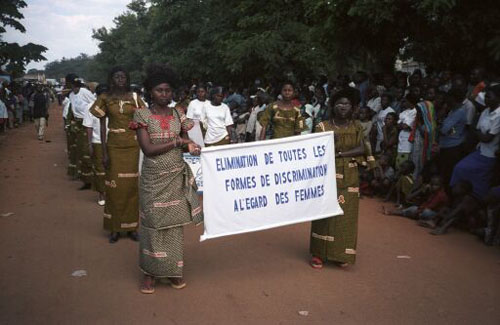
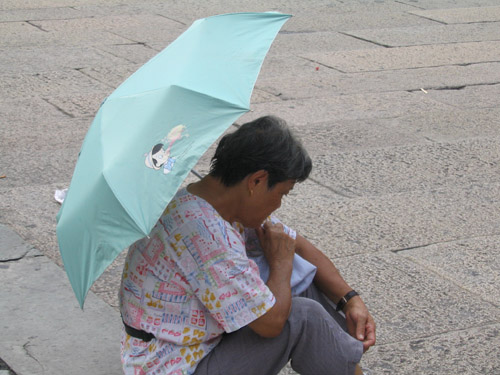
最新評論